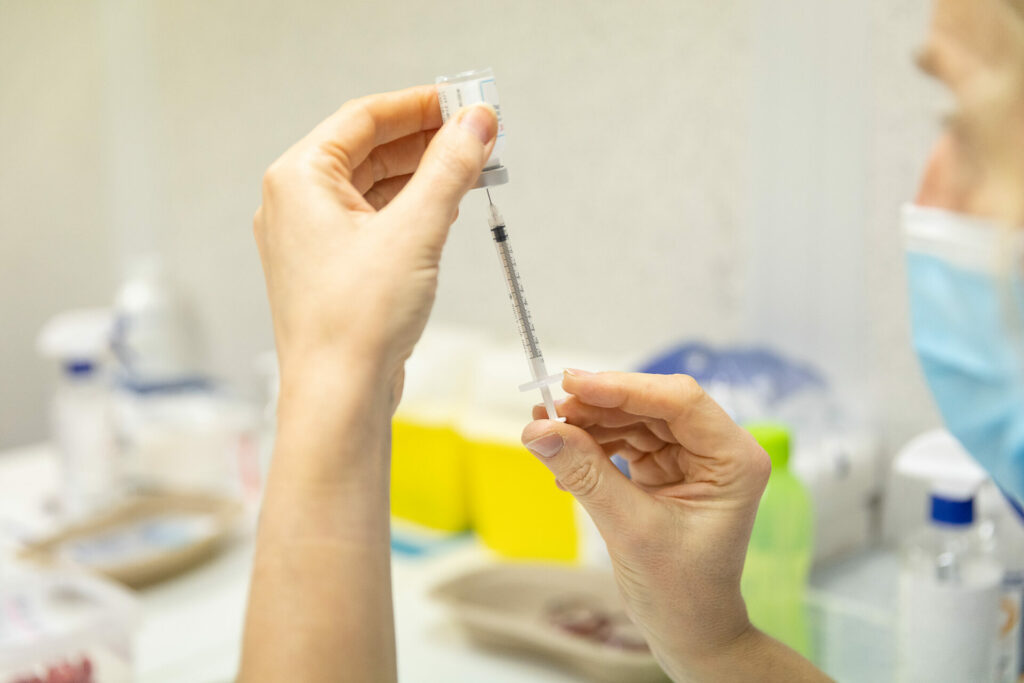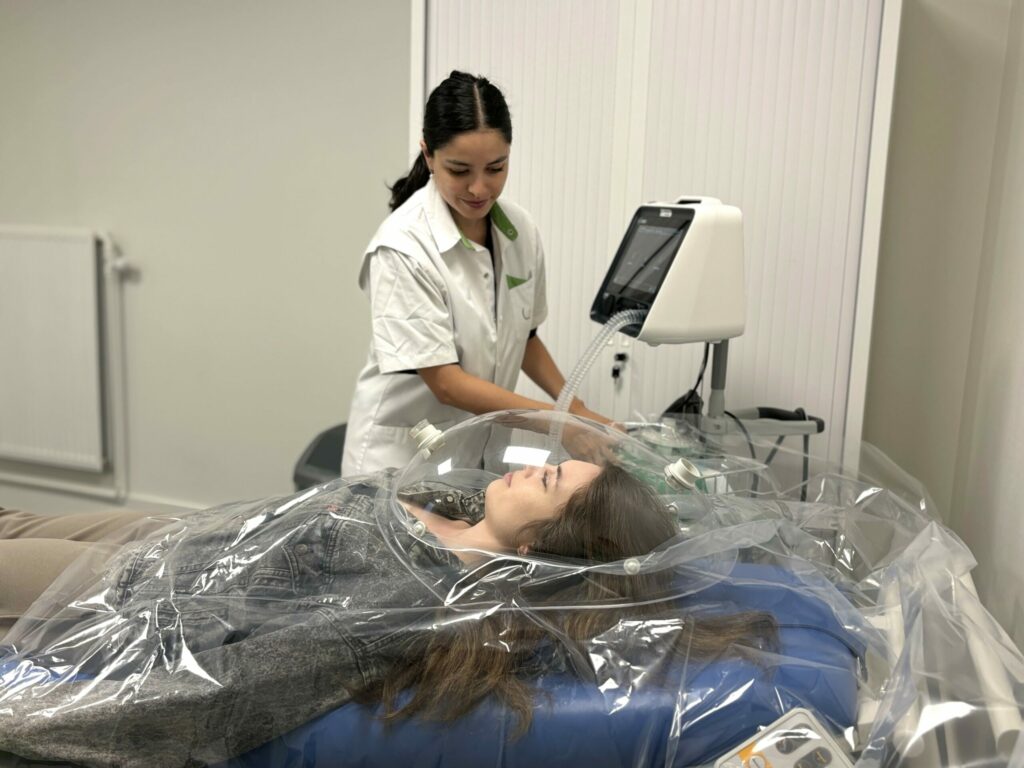Patients diagnosed with 'long Covid' who receive personalised nutrition and exercise treatment not only recover faster, but their quality of life also improves, according to the first results of a pilot study.
After a Covid-19 infection, an increasing number of patients experience persistent symptoms such as difficulty exercising, persistent fatigue and reduced quality of life. If these symptoms persist for more than three months and are not caused by another condition, they are referred to as long Covid (or long-term Covid).
The Clinical Nutrition & Dietetics and Physical Medicine & Rehabilitation departments of the UZ Brussel Hospital and the VUB Rehabilitation Research group investigated to what extent a personalised approach to nutrition and exercise is feasible for these people, and to what extent this approach can improve the physical performance, daily functioning and quality of life of these patients.
Effective improvement
To know whether the treatment worked, the study looked at the ability to perform a strength effort within a certain period, and more specifically the "1-minute sitting-to-standing" test – measuring how often participants can get up from a sitting position in one minute, after 12 weeks of intervention.
Participants were randomly assigned to an intervention group (with personalised treatment) or to a control group (that received standard physiotherapy without nutritional guidance). The individualised approach in the intervention group consisted of weekly, individualised nutritional advice from a dietician and an exercise programme with a trained physiotherapist for 12 weeks.
"After 12 weeks of intervention, participants in the intervention group performed four extra repetitions, compared to three in the control group," said David Beckwée, the head of the VUB Rehabilitation Research group.
He added that a change of three extra repetitions is considered clinically significant. "This indicates that functional performance and physical fitness improved in both groups, but only the intervention group felt an effective improvement. Participants in the intervention group were also able to walk an average of 35 metres longer within the 6-minute time limit."

Credit: Belga / James Arthur Gekiere
"The personalised treatment programme was feasible among long Covid patients. As a pilot study, the UNLOCK study is not suitable to show whether patients are really cured, but the results are promising and reinforce the need for research into a multidisciplinary approach to long Covid," said Elisabeth De Waele, the Head of the Department of Clinical Nutrition and Dietetics.
She said that some things are clear: fast and effective drugs to cure long Covid do not yet exist. "But making sure people eat enough to cover their basic needs is something we have experience with and that can be quickly absorbed by affected people."
"With that, the terrible fatigue that makes people have to rest in the shower between washing their bodies and hair, for example, is something we can already reduce directly," De Waele said. "We are not there yet, but these new insights are crucial."
Related News
- 'Exceptional little summer wave': Covid-19 cases rise in Belgium
- 'Overworked and disillusioned': Over half of Brussels nurses at risk of emotional exhaustion
- Belgian scientists make major breakthrough on long Covid
Participants attended an average of 10 consultations with dieticians and 15 physiotherapy sessions over 12 weeks. During physiotherapy, the focus was mainly on energy maintenance. As physical activity in people with long Covid can lead to a worsening of symptoms (which can sometimes last for days or weeks), the aim was to build up the intensity of exercises taking into account the symptoms to guide participants back to a more active lifestyle.
Patients with long Covid mainly suffer from fatigue and have difficulties with exercise activities, but are still a very diverse group of people, making an individual approach appropriate, according to physical physician Stijn Roggeman.
"Measurements at the start of the study showed poor overall physical fitness. Thanks to this pilot study, we see the positive effects of a multidisciplinary programme on increasing resilience," he said. "Although the effects are unfortunately not such that symptoms disappear completely, the gratitude expressed by patients after the study ensures that motivation remains high to explore this approach further."

